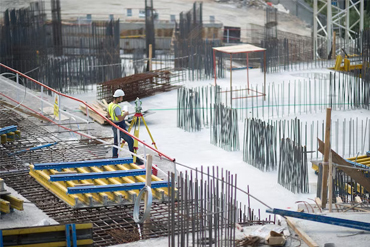Quality Matters: Ensuring Excellence in Infrastructure Material Supply”

Quality Matters: Ensuring Excellence in Infrastructure Material Supply”
In the realm of infrastructure development, the foundation of success lies in the quality of materials used. From towering skyscrapers to sturdy bridges, the integrity of these structures is only as strong as the materials that compose them. This blog post delves into the crucial aspect of ensuring excellence in infrastructure material supply and the impact it has on the longevity and safety of our built environment.
The Backbone of Infrastructure: Quality Materials
Infrastructure projects are colossal endeavors that demand meticulous planning and execution. At the heart of every successful project is the use of high-quality materials. Whether it’s concrete for road construction, steel for bridges, or aggregates for building foundations, the choice of materials plays a pivotal role in determining the project’s durability and resilience.
Why Quality Matters
- Safety First: The safety of inhabitants and users is non-negotiable. Inferior materials can compromise the structural integrity, leading to catastrophic consequences. Prioritizing quality ensures that structures can withstand the test of time and environmental challenges.
- Longevity and Sustainability: Quality materials contribute to the longevity of infrastructure. Investing in durable materials may involve higher upfront costs, but the long-term benefits far outweigh the initial expenses. Sustainable materials also reduce the environmental impact, aligning with modern construction practices.
- Reduced Maintenance Costs: Cutting corners on material quality often results in increased maintenance and repair costs. High-quality materials resist wear and tear, reducing the frequency and extent of maintenance activities. This not only saves money but also minimizes disruptions to infrastructure services.
Key Considerations for Material Supply Chain Excellence
- Supplier Reliability: Establishing partnerships with reliable suppliers is paramount. A robust supply chain ensures a steady flow of quality materials, preventing delays and bottlenecks in construction projects.
- Quality Assurance Protocols: Implementing stringent quality assurance protocols at every stage of the supply chain is essential. This includes thorough testing, inspection, and certification processes to guarantee that materials meet or exceed industry standards.
- Technological Integration: Embracing technological advancements in material testing and production enhances accuracy and efficiency. Smart technologies, such as sensors and data analytics, can be employed to monitor the quality of materials in real-time, allowing for proactive intervention if any deviations are detected.
- Environmental Impact: As sustainability gains prominence, choosing materials with minimal environmental impact is crucial. This involves considering the sourcing, production processes, and recyclability of materials to create a more eco-friendly infrastructure landscape.
Conclusion: Building a Resilient Future
In the ever-evolving landscape of infrastructure development, the emphasis on quality materials is non-negotiable. A commitment to excellence in material supply not only ensures the safety and longevity of structures but also paves the way for a sustainable and resilient future. As we continue to push the boundaries of architectural and engineering feats, let’s remember that the strength of our creations lies in the quality of the materials we choose. Quality matters, not just for today, but for the generations that will inherit the infrastructure we build.

Leave a Reply